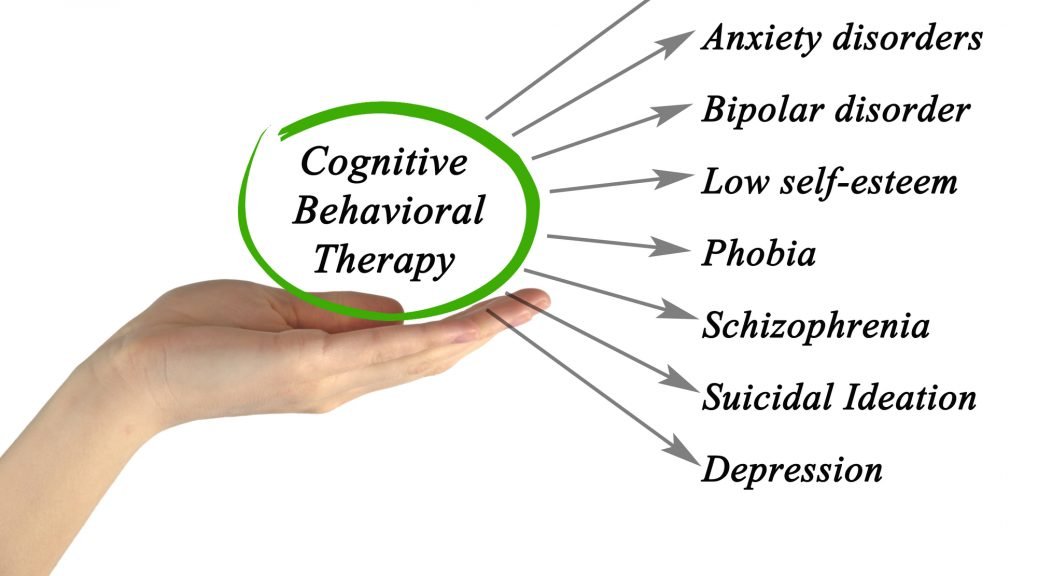Cognitive Behavioral Therapy: History
Cognitive behavioral therapy was founded by the psychiatrist Aaron Beck M.D. in the 1960’s. As he was conducting research on psychoanalysis he noticed that an internal dialogue seemed to be taking place as patients thought through and discussed their problems. Beck is considered to be the founding father of cognitive behavioral therapy. Albert Ellis Ph.D. on the other hand, was a psychologist who was the original creator of the conventional cognitive therapies and some of the basic principles underlying cognitive behavioral therapy.
Albert Ellis Ph.D. and Rational Emotive Therapy
In the mid-1950’s, Albert Ellis Ph.D. began to recognize some very important principles associated with thinking and behaviors, which he then applied to his brand of psychotherapy referred to as rational emotive therapy. He discovered that people would develop strong beliefs which would affect their emotional reactions and functioning. He recognized that certain beliefs could be very irrational resulting in individuals becoming depressed, anxious or contributing to other self-destructive behaviors.
When he began to formulate his ideas in about 1955, the role of thinking or cognition had not been addressed in any significant way by the field of psychology. He developed the therapeutic modality of rational emotive therapy in reaction to the inadequate explanations and techniques of behaviorism and psychoanalysis. He concluded that the inadequacy of psychoanalysis and behaviorism resulted from a deficiency in conceptualizations of emotional disturbance and personality. He concluded that by ignoring the role of thinking or cognition in emotional disturbance, both therapeutic models failed to explain the development and maintenance of dysfunctional thinking patterns.
Aaron Beck M.D. and Cognitive Behavioral Therapy
Following upon the therapeutic model of Albert Ellis Ph.D. and his rational emotive therapy, Aaron Beck M.D. also began recognizing the importance of thinking or cognition in individual’s distress and dysfunction in their daily lives. He began to see that the connection between feelings, emotions and thoughts were crucial in understanding reactions and behaviors.
He also began to recognize that patients were not always aware of their emotions and thoughts and were very incapable of identifying how their thoughts affect their behaviors. He began to recognize that when an individual is upset for example, their thought process is generally negative, destructive and frequently impractical. It became very apparent to Dr. Beck that individual’s thoughts played a huge role in understanding and being able to overcome life’s challenges.
As he continued to develop his therapeutic model, Dr. Beck began to consider that these skewed thinking processes were actually the result of what he considered to be automatic, involuntary thoughts, and that people have a tendency to accept them as true without considering any other alternatives. His cognitive behavioral therapy model began to emphasize the transformation of automatic thoughts by questioning their validity and whether they were an actual reflection of reality. He began to recognize that as an individual considers the existence of and then reduces or alters their destructive, self-critical or catastrophic thoughts, their sense of despair, worry, or depression would gradually decrease, and they would begin to live a more positive and satisfying life.
Literally thousands of studies have confirmed the effectiveness and validity of cognitive behavioral therapy. Many studies have suggested that cognitive behavioral therapy is more effective than medication alone in treating such conditions as insomnia and depression. It now seems to be the treatment model of choice for most psychologists, psychiatrists and other mental health clinicians. Part of its beauty is that it seems to be a very common-sense approach to treatment and can be used for almost any maladjusted behavior, where thoughts and ideas play a crucial role in the development and maintenance of dysfunctional patterns of thought and behavior.
An Overview of Cognitive Behavioral Therapy
Cognitive behavioral therapy (CBT) is a relatively short-term psychotherapy model. It is a practical, results oriented approach to coping with a multitude of dysfunctional disorders including anxiety, depression, posttraumatic stress disorder, panic attacks, obsessive-compulsive disorder, social phobia, bipolar disorder, substance abuse, schizophrenia, eating disorders and anger issues as well as many others. Its goal is to help people to change the way they think and feel about specific situations in life as well as to change their resulting reactions and behaviors.
The therapy involves altering an individual’s attitudes and behavioral patterns by focusing on their thoughts, underlying beliefs, attitudes, and visual imagery. Cognitive behavioral therapy combines cognitive and behavioral psychotherapies and places an emphasis on the meaning ascribed to experiences and thought processes that can often be traced back to earlier childhood experiences. The behavioral aspect of therapy focuses on the connection between the challenges and obstacles faced as well as the actions and thoughts related to them. Negative and unpleasant thoughts can often lead to emotional distress and various other psychological issues. CBT attempts to help people to gain a better awareness of their negative interpretations and the behavioral patterns which arise from their skewed thinking processes. This therapeutic model frequently helps to develop alternative ways of processing thoughts and assists in developing new, more functional thoughts and behavioral patterns to mitigate psychological trauma and distress.
Three Models of Cognitive Therapy
The book Cognitive Behavioral Therapy by George Muntau has identified three major approaches to cognitive behavioral therapy. They are rational emotive therapy, Beck’s cognitive therapy and stress inoculation therapy.
Rational Emotive Behavior Therapy
Like cognitive behavioral therapy, rational emotive therapy also attempts to remediate maladaptive thoughts and behavioral patterns. It utilizes the process of discussion and persuasion to alter relevant thinking processes.
Beck’s Cognitive Therapy
As previously mentioned, Dr. Beck’s cognitive behavioral model originally developed for treating depression, is now used for a multitude of psychological disorders such as eating disorders, anxiety disorders, insomnia and even has been used in such specialties as sports psychology. The focus is on making the connection between maladaptive thinking patterns, feelings, and the resultant reactions and behaviors. Patients are trained to recognize and utilize automatic thoughts to alter thinking patterns and remediate their emotional distress.
Stress Inoculation Therapy
Stress inoculation therapy utilizes self-guided training to assist the patient in developing and utilizing self-transformational statements and affirmations. It is almost a “pep-talk” approach to altering thoughts and the resulting behaviors.
Cognitive Behavioral Therapy: Conclusion
Cognitive behavioral therapy is currently the model used by the majority of clinicians in providing psychotherapy for a whole variety of mental health disorders including depression, anxiety, insomnia and eating disorders as well as many others. It focuses on a common-sense approach to recognizing and dealing with dysfunctional thoughts which underlie distressful feelings and dysfunctional behavioral patterns. Current studies have found cognitive behavioral therapy to be just as effective as medications alone and to have superiority over medications in reducing the rate of relapse of various psychological disorders. Frequently, cognitive behavioral therapy is used in addition to medications for the optimal remediation of psychological disorders.
By Paul Susic Ph.D. Licensed Psychologist




